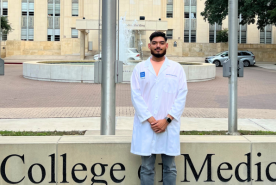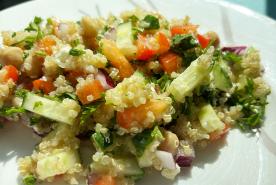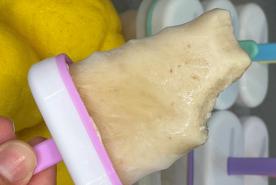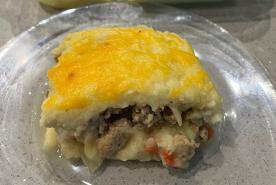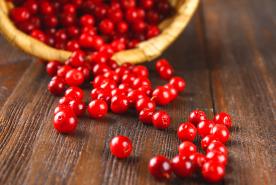Table of Contents
- Basics of good nutrition
- Protein
- Calories
- Vitamins and minerals
- What to do if you don’t feel hungry
- Urea reduction ratio
- How to control other nutrients
- Sodium
- How much sodium is safe for kidney patients?
- Potassium
- Phosphorus
- Calcium
- Fluid
- Nutrition tips for peritoneal dialysis
- How to check nutritional health
- Subjective Global Assessment (SGA)
- Blood tests
Eating healthy is important if you have kidney failure. Good nutrition gives you the energy to do your daily tasks, prevent infection, build and keep muscle, and help you stay at a healthy body weight.
Basics of good nutrition
A healthy eating plan gives you the right amount of:
- protein
- calories
- vitamins
- minerals
Your dietitian may ask what you eat and may also ask you to keep a diary of everything you eat each day. This will show if you are eating the right amount of protein, calories, vitamins, and minerals. Your dietitian can help you plan meals that give you the right amount of these nutrients each day.
Need help with your nutrition? A renal dietician may be able to help you get on track. Find one in your area.
Protein
Your body needs protein to help build muscle, repair wounds, and fight infection. Now that you have begun dialysis, your diet may include more protein. You get protein from:
- eggs, egg whites
- meats (beef, veal, lamb, pork)
- poultry (such as chicken and turkey)
- fish and other seafood
- vegetables and grains
This is not a complete list. Learn more about protein.
Calories
Calories are like fuel—they provide your body with the energy you need to live. They are important because they:
- help you stay at healthy body weight
- give you the energy to do your daily tasks, and stay active
- Help your body use the protein in food to build muscles
If you are not getting enough calories and do not have diabetes, you may need to consume more sugar, jam, jelly, hard candy, honey, or syrup. Other good sources of calories come from fats such as soft (tub) margarine and oils like canola or olive oil.
Vitamins and minerals
Kidney disease and dialysis change the amounts of vitamins and minerals your body needs. Also, your kidney diet may limit some food choices that would typically give you important vitamins and minerals. Instead, you may need to take special vitamin or mineral supplements. Be sure to:
- Take only the vitamins and minerals your healthcare professional recommends because some vitamins and minerals may be harmful to people with kidney failure.
- Avoid herbal supplements.
What to do if you don’t feel hungry
People on dialysis may be challenging to get enough nutrients from food, especially if they don’t feel hungry. Nutritional supplements can help you get the calories and nutrients you need. Common supplement forms include:
- liquid drinks
- shakes
- juices
- bars
- soups
- cookies
- puddings
Some nutritional supplements are made just for people with diabetes or kidney failure. Before starting a nutritional supplement, ask your dietitian which one is best for you.
Sodium
Sodium affects blood pressure and water balance in your body. Sodium is found in large amounts in table salt and in foods that have added salt such as:
- seasonings like soy sauce, sea salt, teriyaki sauce, garlic salt, or onion salt
- most canned foods and frozen dinners (unless they say “low sodium”)
- processed meats like ham, bacon, hot dogs, sausage, and deli meats
- salted snack foods like chips and crackers
- canned or dehydrated soups (like packaged noodle soup)
- most restaurant foods, take-out foods, and fast foods
This is not a complete list. Learn more about sodium.
Reading food labels can help you choose foods with less sodium. Do NOT use salt substitutes containing potassium unless approved by your healthcare professional.
Potassium
Potassium helps your muscles and heart work properly. Large amounts of potassium are found in:
- certain fruits and vegetables (like bananas, oranges, potatoes, tomatoes)
- milk and yogurt
- dried beans and peas
- most salt substitutes
This is not a complete list. Learn more about potassium.
Too much or too little potassium in the blood can be dangerous. A simple blood test can check your potassium level. If it is not normal, you may need to:
- work with your dietitian to eat less high potassium foods
- take special medicine to help get rid of too much potassium
Phosphorus
Phosphorus is a mineral that is important for bone health. Large amounts of phosphorus are found in:
- dairy products, such as milk, cheese, yogurt, ice cream, and pudding
- nuts and nut butters
- dried beans and peas, such as kidney beans, split peas, and lentils
- beverages, such as cocoa, beer, and dark cola drinks
- bran bread and bran cereals
- packaged foods with phosphate additives, look for any word in the ingredient list that begins with “PHOS.”
This is not a complete list. Learn more about phosphorus.
A high phosphorus level in your blood can cause bone disease and heart disease. To keep phosphorus at safe levels in your blood, you may need to limit phosphorus-rich foods. Your healthcare professional may also tell you to take a type of medicine called a phosphate binder with your meals and snacks.
Calcium
Calcium is a mineral that is important for building strong bones. The best way to prevent calcium loss from your bones is to control your blood phosphorus level. Since your kidneys can no longer remove calcium from your body, calcium may build up in your blood vessels, heart, joints, muscles, and skin where it doesn’t belong.
To prevent calcium from building up in your body:
- avoid eating calcium-fortified foods
- read food labels for “added” nutrients, such as calcium
- ask your healthcare professional about phosphate binders that do not have calcium
Your healthcare professional may have you take a special form of vitamin D to help keep calcium levels balanced and prevent bone disease. Do not take over-the-counter vitamin D or calcium supplements unless your healthcare professional recommends them.
Fluid
Fluid is any food or beverage that turns to liquid at room temperature. Some examples are:
- ice
- beverages like coffee, tea, sodas, juices, and water
- desserts like gelatin, ice cream, sherbet, or popsicles
- gravy and soup
This is not a complete list. Learn more about fluid.
If you have kidney failure, you may need to limit your fluid intake. You may be drinking too much fluid if you have:
- a sudden increase in weight
- swelling or puffiness around the eyes, hands, or feet
- shortness of breath
- a rise in blood pressure
Tell your dialysis care team if you are having any of these problems.
Your dialysis team will let you know if you gain too much fluid weight. Ask your dietitian for helpful ways to cut down on the amount of fluid you are drinking.
Nutrition tips for peritoneal dialysis
If you are on peritoneal dialysis, you may gain unwanted weight over time. This happens because the dialysis fluid you use for exchanges contains a sugar called dextrose. Dextrose helps remove extra fluid from your blood. However, dextrose has calories, which can lead to unwanted weight gain. If you have diabetes, the excess sugar from your dialysis solution can cause your blood sugar to rise.
To help prevent unwanted weight gain or high blood sugar, you should:
- Ask your dietitian for help planning meals that will prevent extra weight gain and high blood sugar.
- Limit sodium and fluid. This can help stop the need for higher sugar solutions in your dialysis fluid.
- Ask your healthcare professional if you need to change your medications to help control blood sugar.
- Ask your healthcare professional if you need to change the type of dialysis fluid you use for your exchanges.
Subjective Global Assessment (SGA)
Subjective Global Assessment is an exam your dietitian may give you to check your body for signs of nutrition problems. During an SGA, your dietitian will ask questions about food intake and check the fat and muscle stores in your body. The dietitian looks at:
- changes in your weight
- changes in the tissues around your face, arms, hands, shoulders, and legs
- food intake
- your activity and energy levels
- problems that might keep you from eating
Blood tests
There are two blood tests that may be used, albumin and normalized protein equivalent of nitrogen appearance (PNA):
- Albumin is a type of protein in your blood. If the albumin level is too low, it may mean you are not eating enough protein or calories.
- PNA estimates how much protein you eat. It helps your healthcare professional and dietitian check to see if you are eating the right amount of protein.



